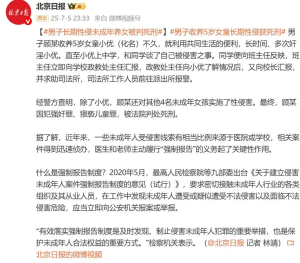Mexican immigrants send less money home, experts disagree

Newsweek reported on the 27th that the amount of money remitted by Mexican immigrants living in the United States to their hometowns has dropped sharply in the past year. Experts have different opinions on the reason. Some experts believe that it is the impact of President Trump’s anti-immigration policy, while others believe that it is caused by economic instability. Another possibility is that Mexican immigrants have switched to informal remittance channels to avoid being deported.
According to data from the Spanish Bank for International Development (BBVA Research), about 12.3 million Mexican citizens live overseas, of which 97% live in the United States. In 2024, Mexican immigrants living in the United States remitted a record high of 63.2 billion yuan to their hometowns, but between January and April 2025, the cumulative remittance amount of 19 billion was 2.5% lower than the same period in 2024.
Eri Zolov, a history professor at Stony Brook University, said that the decrease in remittances from Mexican immigrants is due to the growing fear of being deported. He said it is conceivable that Mexican immigrants are worried that there may be Immigration and Customs Enforcement (ICE) agents lying in wait near remittance sites, waiting to arrest undocumented immigrants who are sending money back home.
Solov said that although there have been no reports of Western Union or other similar remittance agencies being raided by ICE agents, these locations do pose risks from the perspective of undocumented immigrants. He said that concerns about remittances may make undocumented immigrants prefer to keep cash rather than send money back home, and workplace raids may make it more difficult to work, and keeping cash can be used as a response in case they cannot work to avoid raids.
Ana Lopez Garcia, associate professor of global migration at Maastricht University, pointed out that deportation is not the main reason for the decline in remittances. Studies have shown that when immigrants feel the risk of deportation, they usually start to prepare for a rainy day, and remittances to their hometowns increase instead of decrease, to ensure that they have financial support in case they are deported back home.
Garcia analyzed that macroeconomic factors such as the tariff war are the key to the decline in remittances from Mexican immigrants. The current situation is very similar to the economic recession in 2007, when the amount of money Mexican immigrants sent back to their hometowns also decreased.
The “Big, American Act” imposes a 3.5% special sales tax on remittances. In addition to exemptions for American citizens, green card holders and H-1B, H-2A, H-2B and other visa holders must pay it, which is estimated to affect 40 million people.
Although the bill has not yet been passed by Congress, Barry Maydom, a senior lecturer at the Institute of Sociology at Birkbeck, University of London, said that Mexican immigrants living in the United States may begin to use informal remittance channels to send money back to their hometowns. In addition to responding to the new regulations in advance, it also avoids becoming a target of deportation.








